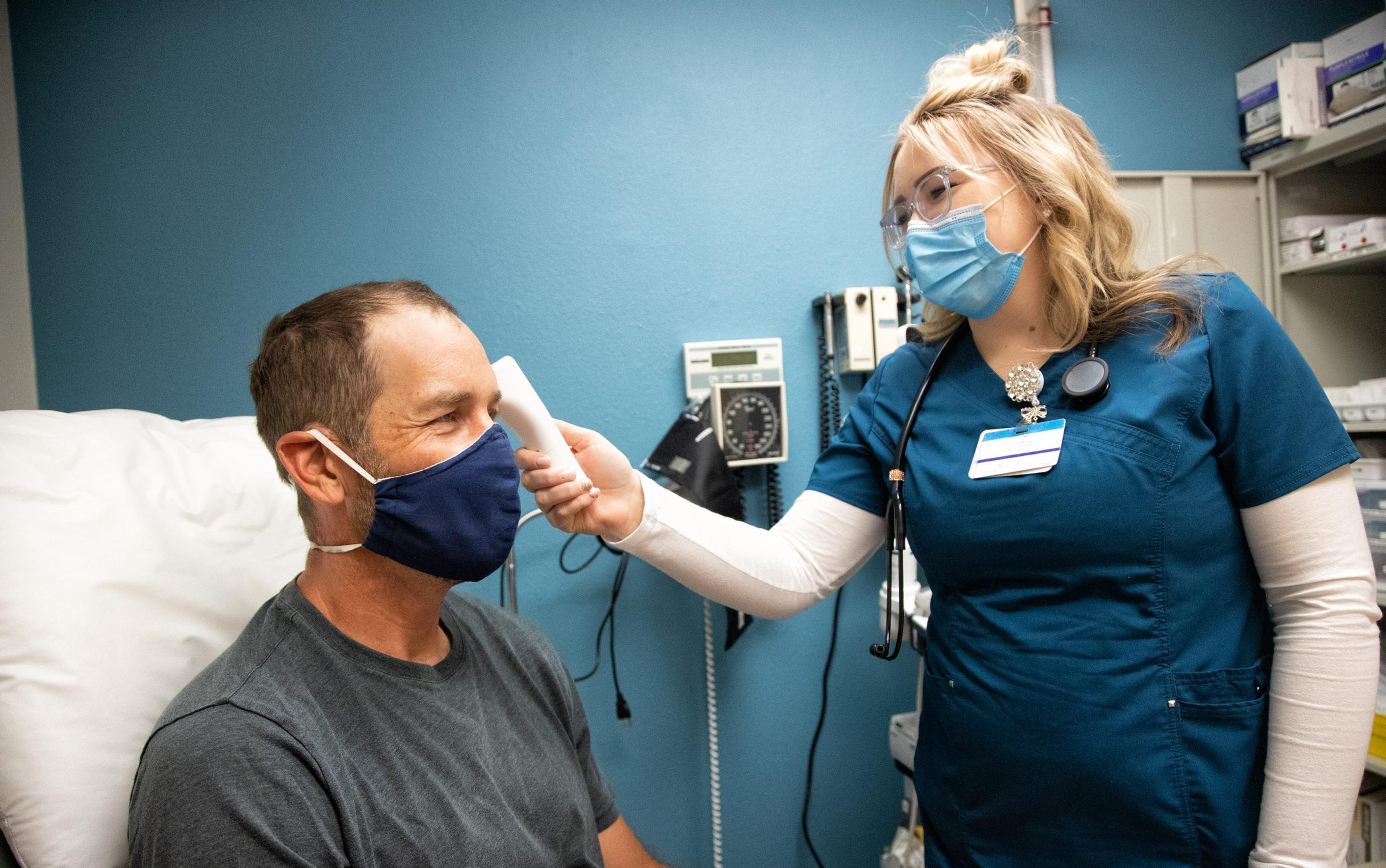Safety Net Clinics Serve as the Backbone of the Pandemic Response
Amy Barczy
| 3 min read
Amy Barczy is a former brand journalist who authored...

Health clinics that serve people with low income or little to no health insurance – known as “safety net” clinics – were the backbone of the pandemic response. As the pandemic laid bare longstanding social and racial disparities in health outcomes, the urgent need for access to affordable health care became even more important. Dr. James Grant, senior vice president and chief medical officer at Blue Cross Blue Shield of Michigan, spoke about the company’s efforts to support safety net clinics and increase access to quality health care during the pandemic during the virtual Health Safety Net 2021 symposium Oct. 14. The symposium, hosted by Blue Cross, brought together front-line safety net health care providers and leaders from Blue Cross, Blue Cross Complete and the Michigan Department of Health and Human Services. Blue Cross made a concerted effort to help individuals across the state during the pandemic, from conducting a free COVID-19 mobile testing program, partnering with funders to implement a rapid response safety net telehealth initiative, partnering with Meijer to expand access to COVID vaccines for people with a disability and addressing food insecurities. In addition, every year Blue Cross provides safety net clinics with grant money to do their important work. Since 2005, Blue Cross has provided more than $17 million to safety net clinics in Michigan since 2005, providing care to more than 56,000 patients each year. When asked during the symposium what safety net providers can do to prepare for the “new normal,” Grant said many patients have delayed care due to the pandemic – and that there may be patients that have more advanced diseases or conditions than there were previously. Grant advised that safety net clinics have an important role to play in getting communities across the state vaccinated against COVID-19, especially as providers need to prepare for Pfizer’s COVID vaccine to be authorized for use in children between the ages of 5 years and 11 years. “We’ve got to get our population vaccinated,” Grant said, noting that getting a parent vaccinated is the first step in getting their child vaccinated. Addressing systemic inequalities in health care are also a priority for Blue Cross, Grant said. During the last year, Blue Cross has provided unconscious bias education to more than 5,000 physicians. “I think we’re going to see people more conscious about unconscious bias, and thinking about how health equity plays into our community,” Grant said. “I think we’re going to see people take more time with patients to get to know them, and not just the disease that they have.” High mortality rates among Black women who are pregnant or have recently given birth are “unacceptable,” said Grant. Blue Cross is also taking action on this front, by donating $5 million to the Michigan Health and Hospital Association Keystone Center to support programming for women and children’s health. More from MIBluesPerspectives: https://www.mibluesperspectives.com/2021/10/25/neighbors-help-neighbors-at-clinic-for-uninsured-in-bay-city/ https://www.mibluesperspectives.com/2021/10/13/covid-booster-shot-frequently-asked-questions/ https://www.mibluesperspectives.com/2021/09/23/fall-flu-forecast-what-to-know-about-the-upcoming-influenza-season/ Photo credit: Getty Images





